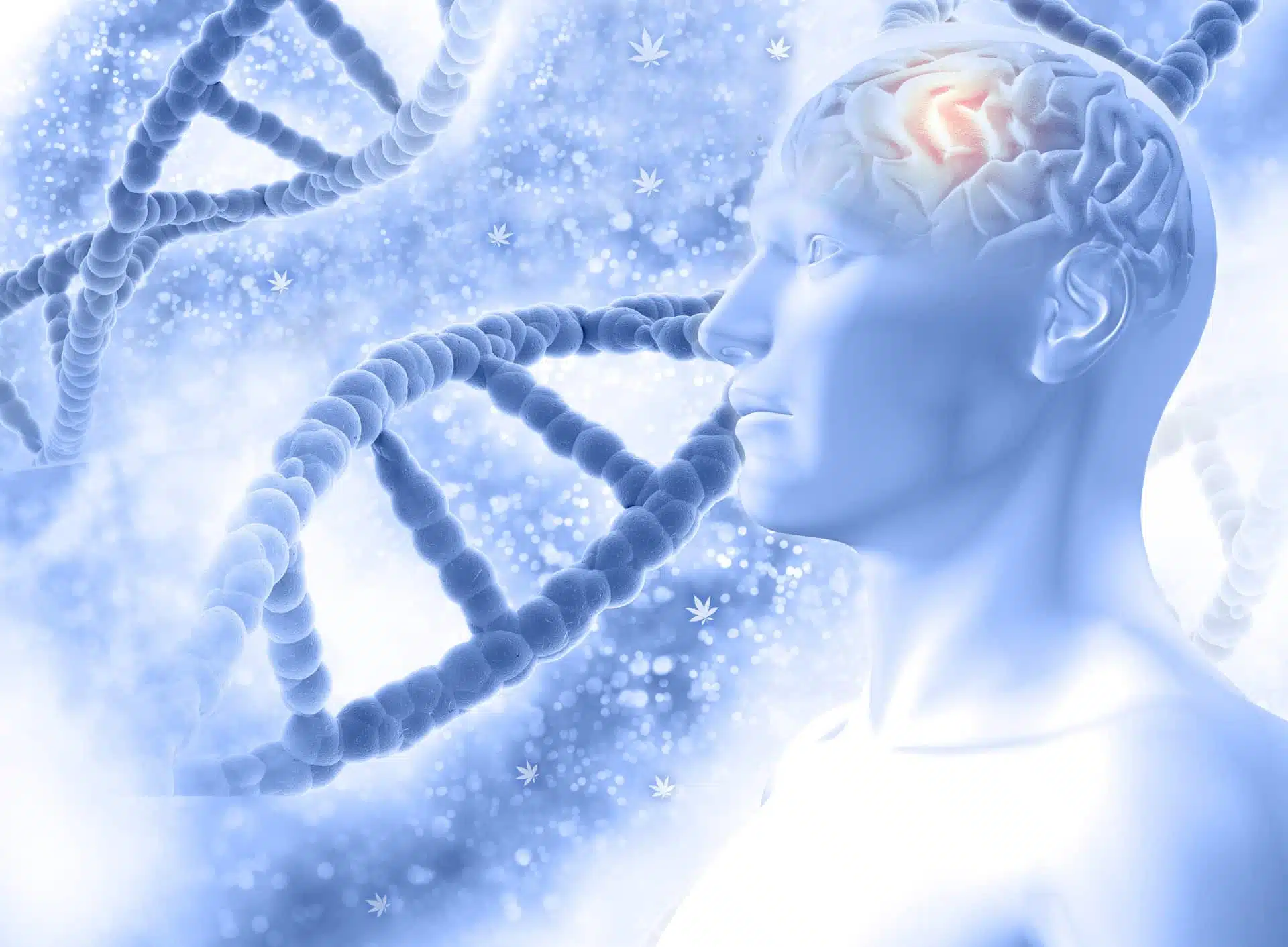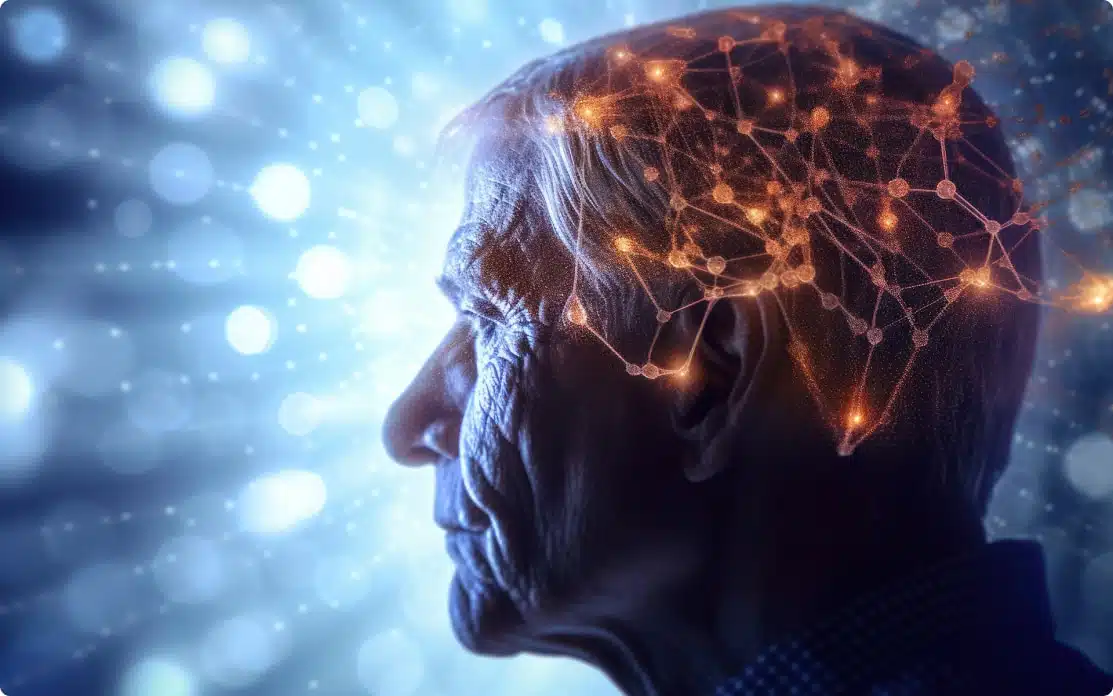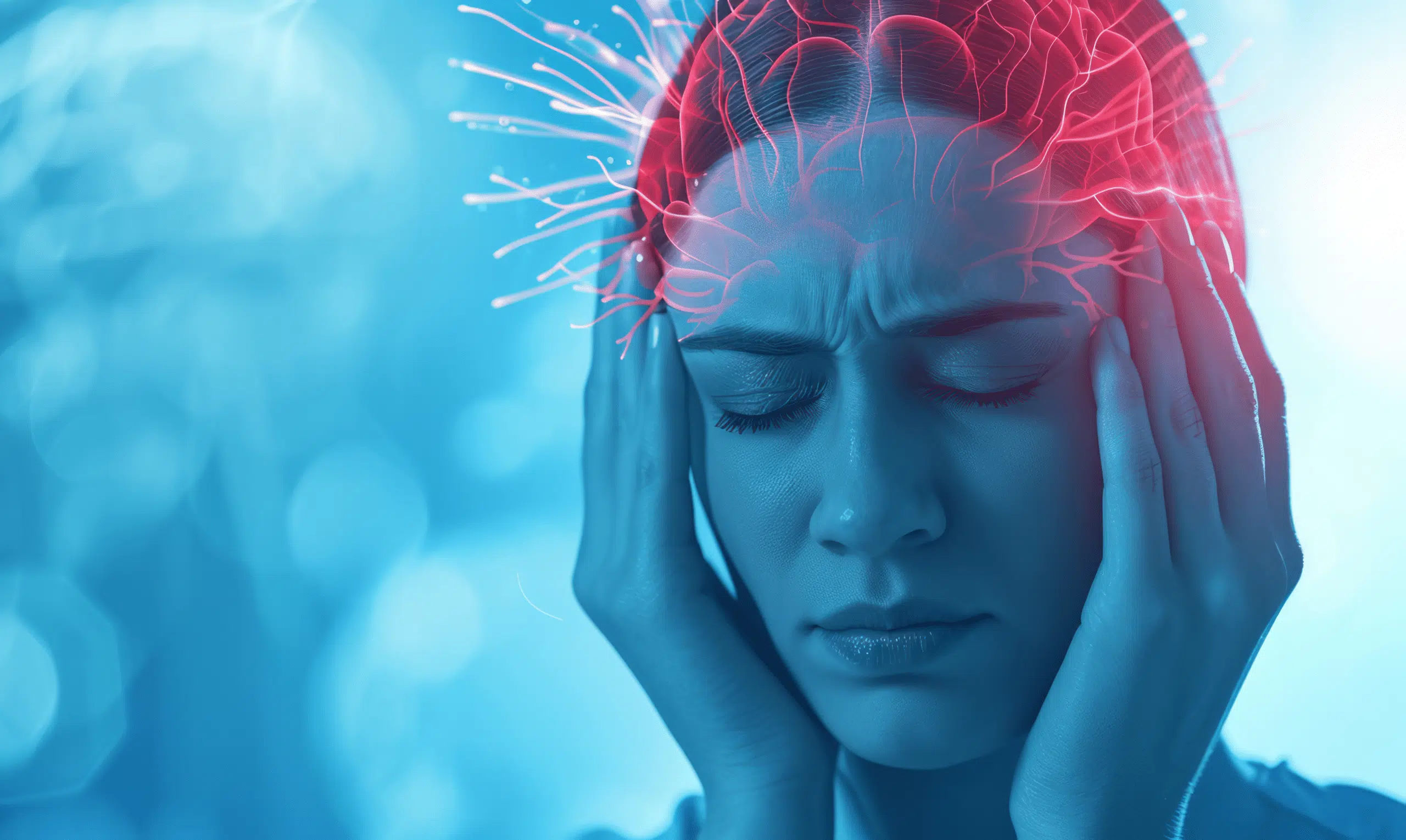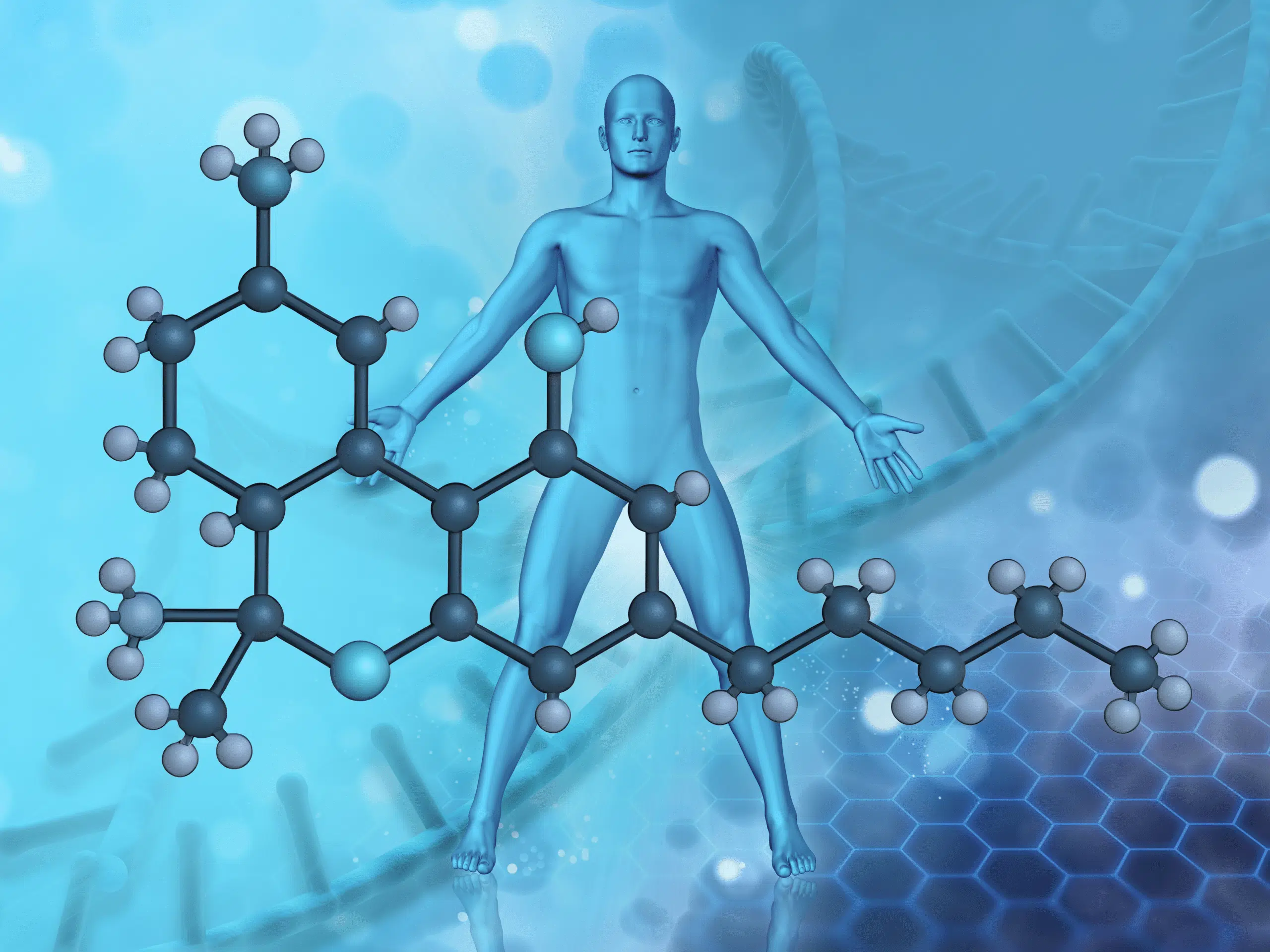Share
Medical cannabis and neurological disorders: Recent studies

Medical cannabis and neurological disorders: Recent studies
Cannabinoids and neurological disorders: Mechanisms of action
The body’s natural cannabis system, known as the endocannabinoid system, plays a central role in the brain’s functioning, particularly in neurological disorders, and is targeted by CBD. Discovered in the early 1990s, the ECS involves two main CB receptors: CB1 and CB2. CB1 receptors are found throughout the central nervous system, spinal cord, and peripheral nervous system, as well as in organs like the heart and reproductive system. On the other hand, CB2 receptors are mostly located in components of the immune system.
Endogenous ligands for CB1 and CB2 receptors include compounds like anandamide and 2-arachidonoylglycerol. Exogenous ligands, such as THC and CBD from cannabis plants, also interact with these receptors. Unlike THC, CBD doesn’t cause a “high” because it doesn’t strongly bind to CB receptors. Instead, CBD acts as an antagonist to CB1/CB2 agonists and negatively modulates CB receptors. Research suggests that CBD can increase levels of anandamide in tissues by inhibiting its breakdown.
In conditions like schizophrenia, disruptions in the ECS, particularly changes in CB1 receptor function or endocannabinoid levels, may play a role in disease onset and progression. Using drugs to affect the endocannabinoid system seems promising for treating schizophrenia. However, most of the evidence connecting the endocannabinoid system to schizophrenia relies on data from population studies, which might suggest a relationship between using cannabis and mental disorders but not necessarily a cause-and-effect link.
CB1 receptors are highly expressed on inhibitory neurons and to a lesser extent on excitatory terminals, as well as on neurons containing dopamine D1 receptors. These receptors play a role in emotional behaviors affected by psychiatric and anxiety disorders. CBD may also interact with dopamine receptors and induce epigenetic modifications in gene targets, potentially influencing the treatment of various psychopathologies.
When people with neurological disorders use medical cannabis, the cannabinoids can interact with their ECS. This interaction can help to reduce symptoms like tremors in Parkinson’s disease, memory problems in Alzheimer’s disease, or spasticity in multiple sclerosis. While additional research is needed, to fully understand how medical cannabis works for these conditions, some people find relief from their symptoms when using it under the guidance of a healthcare professional.
Clinical evidence and applications of medical cannabis in neurological disorders
Neurological disorders encompass a broad spectrum of conditions affecting the nervous system, including the brain, spinal cord, and nerves. These disorders can manifest in diverse symptoms such as pain, seizures, movement issues, cognitive decline, and mood disturbances. Common examples include epilepsy, multiple sclerosis, Parkinson’s disease, Alzheimer’s disease, neuropathic pain, and anxiety disorders. The impact of neurological disorders extends beyond physical symptoms, often leading to chronic pain, disability, and mental health challenges like depression and anxiety. Additionally, the financial burden of managing these conditions can be substantial, impacting both individuals and their families.
In recent years, there has been increasing interest in exploring the potential therapeutic benefits of CBD in managing neurological disorders. CBD, a compound found in the cannabis plant, has garnered attention for its promising therapeutic effects without the psychoactive properties associated with THC. While research on CBD’s use in neurological disorders is still evolving, emerging evidence suggests its potential efficacy in various conditions. For instance, CBD has demonstrated antiseizure properties and has been FDA-approved for certain severe childhood epilepsies. It also shows promise in potentially reducing brain inflammation and damage in conditions like multiple sclerosis and traumatic brain injury. CBD’s anti-inflammatory and antioxidant properties are being investigated in neurodegenerative disorders like Parkinson’s and Alzheimer’s diseases. Preliminary studies suggest that CBD may help alleviate symptoms such as motor impairments, cognitive decline, and neuroinflammation associated with these conditions. Additionally, CBD may offer relief for neuropathic pain and anxiety disorders.
However, it’s essential to note that research on CBD and neurological disorders is still in its early stages, and more clinical trials are needed to establish its safety and efficacy conclusively. Questions regarding optimal dosages, formulations, and long-term effects also require further investigation. Individuals considering CBD as a treatment option for neurological disorders should consult with healthcare professionals to receive personalized advice, evaluate potential benefits and risks, and ensure compatibility with other medications. In conclusion, while CBD holds promise as an alternative treatment for various neurological conditions, ongoing research is necessary to fully understand its therapeutic potential and ensure safe and effective use.

Medical cannabis and neurological diseases: Potential benefits and considerations
Parkinson
Parkinson’s disease is a significant neurodegenerative condition characterized by the progressive breakdown of the nervous system, primarily marked by the loss of dopamine. Treating the early motor symptoms with dopamine-focused therapies is one approach, but managing other symptoms might need different methods. For instance, for psychiatric symptoms, selective serotonin inhibitors could be helpful, while cholinesterase inhibitors might be useful for cognition.
Research indicates that inflammatory processes contribute to the degeneration of dopaminergic neurons in the nigrostriatal pathway, potentially leading to mitochondrial dysfunction, oxidative stress, or cell death. Environmental factors and age-related chronic inflammatory conditions may trigger this neuroinflammation.
Preclinical studies using animal models of Parkinson’s disease have demonstrated that CBD can protect against dopaminergic neuron loss and motor deficits. Additionally, in vitro experiments have shown that CBD can increase cell viability, promote the expression of axonal and synaptic proteins, and protect against mitochondrial dysfunction induced by neurotoxins.
While some clinical trials have shown promising results regarding CBD’s efficacy in improving quality of life measures and alleviating non-motor symptoms in patients with Parkinson’s, larger-scale randomized controlled trials are needed to confirm these findings and assess the long-term safety of CBD treatment.
Alzheimer
The relationship between CBD and Alzheimer’s Disease is multifaceted, encompassing various molecular pathways and potential therapeutic benefits. Alzheimer’s, a chronic neurodegenerative disorder, involves the gradual decline of cognitive functions and is influenced by factors such as reduced acetylcholine levels, Aβ aggregates, tau hyperphosphorylation, oxidative stress, neuroinflammation, and other metabolic and genetic factors.
CBD has emerged as a promising candidate for Alzheimer’s therapy due to its neuroprotective, anti-inflammatory, and antioxidant properties. Studies have shown that CBD can mitigate Aβ-induced toxicity, inhibit tau hyperphosphorylation, and modulate the Wnt/β-catenin pathway, among other mechanisms. Additionally, CBD has been found to promote neurogenesis, reduce amyloid plaque deposition, and improve cognitive function in Alzheimer’s animal models.
Combination therapies of CBD and THC have demonstrated synergistic effects in alleviating Alzheimer-related symptoms, with CBD attenuating the psychoactive effects of THC while enhancing therapeutic benefits. Clinical trials and observational studies have reported positive outcomes with cannabinoid-based treatments, suggesting their potential efficacy and safety in managing symptoms.
Moreover, the use of nanoparticle formulations of CBD holds promise for targeted drug delivery and enhanced therapeutic effects in Alzheimer’s treatment. Computational modeling studies have elucidated the molecular mechanisms underlying the interaction between cannabinoids and key enzymes involved in AD pathogenesis, providing insights into their therapeutic potential.
Overall, CBD presents a multifaceted approach to Alzheimer’s therapy, targeting various molecular pathways implicated in disease progression. Further research is warranted to optimize therapeutic dosages, evaluate long-term effects, and elucidate the precise mechanisms of action underlying the neuroprotective properties of CBD in Alzheimer’s.
Epilepsy
Epilepsy is a long-term brain condition causing repeated seizures and potential brain harm. In this disorder, brain regions may get inflamed, especially in cases where standard treatments don’t work. CBD has shown promise in reducing the severity and frequency of seizures, especially in resistant cases. Recent studies suggest that CBD’s effect on epilepsy might be because it fights brain inflammation.
Research in animals found that CBD can ease convulsions caused by certain substances, lessening the activation of certain brain cells and reducing the number of abnormal neurons. CBD may help in epilepsy by calming inflammation in the brain, which could reduce the chances of seizures happening.
One way CBD works is by stopping certain chemicals that start seizures and cause brain damage. It also boosts a substance called adenosine, which helps calm the brain’s activity. CBD can also block certain channels in brain cells that keep inflammation going, which could help prevent seizures.
In summary, CBD shows promise in managing epilepsy by reducing brain inflammation, which helps control seizures.
Multiple Sclerosis
In multiple sclerosis, certain chemicals produced by microglia, called proinflammatory cytokines, damage the protective covering of nerve fibers, leading to demyelination. This process can harm the connections between nerve cells that control muscle movement, leading to abnormal signaling between the brain and muscles, resulting in spasticity.
Several studies have investigated the effects of CBD on MS using mouse models. Kozela and coworkersfound that CBD reduced the severity of symptoms associated with multiple sclerosis-like conditions, such as demyelination, by decreasing the activation of microglia and recruitment of T-cells. This effect of CBD did not seem to involve the known CB2 receptors.
In conditions such as multiple sclerosis commonly occurs spasticity, a condition characterized by muscle stiffness, involuntary muscle contractions, and difficulty controlling movements.
Another study, presented by Mecha and colleagues, suggested that CBD’s anti-inflammatory action in this disease might be linked to adenosine A2A receptors. CBD was found to reduce microglia activation and inhibit the production of proinflammatory chemicals, which could help protect nerve cells from damage.
Furthermore, in 2019, Sajjadian and coworkers demonstrated that CBD treatment could alleviate demyelination caused by certain substances. This was associated with a decrease in microglia accumulation and a reduction in oxidative stress, suggesting that CBD may have protective effects on nerve cells in multiple sclerosis.
Overall, these studies suggest that CBD has potential benefits in multiple sclerosis by reducing inflammation, protecting nerve cells, and alleviating symptoms associated with the disease.
Schizophrenia
Schizophrenia is a long-term mental health condition where individuals perceive reality differently from others. While the exact cause is still unclear, evidence suggests that excessive activation of microglia, leading to inflammation in the brain, may play a role in its development.
A study conducted by Gomes and coworkers investigates the effects of CBD on both glial (cells that support and protect nerve cells) and behavioral changes associated with schizophrenia. The study’s results showed that CBD treatments, given at doses of 30 and 60 mg/kg over several days, helped to stabilize the abnormal expression of glial markers in the dorsal hippocampus.
Moreover, CBD was found to reduce the activation of microglia and astrocytes, two types of glial cells, and enhance neuronal function. These effects likely contributed to the improvements seen in the behavior of the mice with schizophrenia-like symptoms.
Overall, this study suggests that CBD has the potential to mitigate both the neuroinflammation and behavioral disturbances associated with schizophrenia. However, further research is needed to fully understand the mechanisms involved and to determine the effectiveness and safety of CBD as a treatment for schizophrenia in humans.
Neuropathic pain
Neuropathic pain happens when nerves are damaged, causing signals between the spine and brain to misfire and lead to sensations of pain in muscles, skin, or other body parts. In a study from 2018, Li and colleagues investigated how CBD affects inflammation and recovery in spinal cord injuries in female laboratory rats.
In the group with spinal cord injuries, there was a big increase in inflammatory chemicals linked to T-cell activity. However, when these laboratory rats were treated with CBD (1.5 mg/kg, injected) the inflammation significantly decreased. This inflammation reduction helped alleviate neurological pain, as seen in tests. Overall, CBD treatment seemed to ease spinal cord injuries by reducing inflammation, showing potential for managing neuropathic pain caused by nerve damage or injury.

Future directions and challenges in medical cannabis research for neurological disorders
In the journey towards unlocking the full therapeutic potential of medical cannabis for neurological disorders, several critical paths must be navigated, alongside challenges that need to be addressed. One pivotal direction lies in conducting robust clinical investigations encompassing large-scale randomized controlled studies. These studies, spanning diverse demographics and neurological conditions, are essential to establish comprehensive safety and effectiveness profiles for medical cannabis.
Precision in formulation and dosage is another crucial aspect. Tailoring CBD formulations and dosage recommendations specific to several neurological disorders ensures optimal therapeutic outcomes while minimizing potential side effects. Additionally, gaining deeper mechanistic insights into how medical cannabis interacts with the body is vital. Understanding the complex mechanisms underlying its neuroprotective and anti-inflammatory properties could pave the way for novel therapeutic interventions.
Exploring synergistic combinations with existing therapies presents an exciting opportunity. Investigating how medical cannabis can complement and enhance the efficacy of current treatments holds promise for revolutionizing neurological disorder management. However, regulatory challenges persist. Simplifying regulatory frameworks to facilitate access to medical cannabis therapies is imperative. Streamlining regulations encourages innovation and ensures timely integration of medical cannabis into clinical practice based on emerging research.
Overall, proactively addressing these future directions and challenges is essential for advancing medical cannabis research in the field of neurological disorders. Collaboration among researchers, healthcare professionals, policymakers, and patients, is crucial for realizing the full therapeutic potential of medical cannabis and improving neurological health outcomes.
Sources:
Singh K et al. Emerging Therapeutic Potential of Cannabidiol (CBD) in Neurological Disorders: A Comprehensive Review. Behavioural Neurology. 2023. doi: 10.1155/2023/8825358
Fernández-Ruiz J et al. Cannabinoids in Neurodegenerative Disorders and Stroke/Brain Trauma: From Preclinical Models to Clinical Applications. Neurotherapeutics. 2015 Oct;12(4):793-806. doi: 10.1007/s13311-015-0381-7.
Viana MB et al. Cannabis sativa and Cannabidiol: A Therapeutic Strategy for the Treatment of Neurodegenerative Diseases? Med Cannabis Cannabinoids 2. 2022;5(1): 207–219. doi: 10.1159/000527335.
Friedman D et al. Safety, Efficacy, and Mechanisms of Action of Cannabinoids in Neurological Disorders. Lancet Neurol. 2019 May;18(5)504-512.
Milano W, Capasso A. Neuroprotection by Cannabinoids in Neurodegenerative Diseases. Alzheimers Dement Cogn Neurol. 2018;2(1): 1-7. doi: 10.15761/ADCN.1000120. Yousaf M et al. Neuroprotection of Cannabidiol, Its Synthetic Derivatives and Combination Preparations against Microglia-Mediated Neuroinflammation in Neurological Disorders. Molecules. 2022;27(15):4961. doi: 10.3390/molecules27154961











